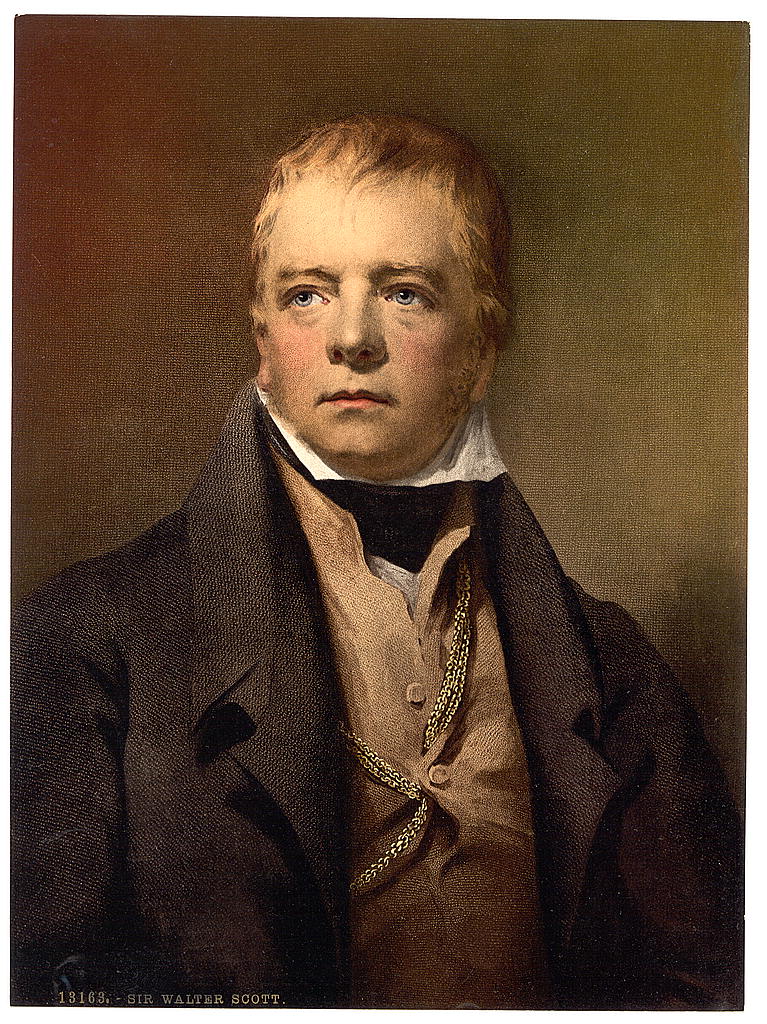Get Today in Masonic History into your Inbox. Sign up today for one of our email lists!
Need an article for your Trestleboard/Newsletter see our Use Policy
Walter Scott, 1st Baronet is Born

Today in Masonic History Walter Scott, 1st Baronet is born in 1771.
Walter Scott, 1st Baronet was a Scottish poet and novelist.
Scott was born in Old Town Edinburgh, Scotland on August 15th, 1771. In 1773, he suffered from polio and was left lame for the rest of his life. To try to cure his lameness, his family sent him to live with his paternal grandparents and aunt Jenny in the Scottish Borders. There he was taught to read by his aunt. He also learned of the rich Scottish history and legends of the area. He returned to Edinburgh in 1775. Over the next two summers he traveled with his aunt as they attempted water therapy to help him to walk.
In 1778, Scott enrolled in the Royal High School of Edinburgh. After graduating he was sent again to live with his aunt for 6 months in Kelso. While there he attended the local grammar school and met the two brothers who later in life printed his novels and became his business partners.
In 1783, Scott began attending the University of Edinburgh. At the age of 12 he was almost a year younger than his contemporaries. While at the University he became friends with the son of one of the professors. The professor held literary salons in his home and invited notable individuals of the literary scene. In 1786 at one of the salons Scott met Robert Burns. It was their only meeting.
Scott, or a family member, decided he'd be an attorney. In 1792, after studying law, he was admitted to the Faculty of Advocates, similar to the bar in the United States.
By 1796, Scott started his literary career. All of his life he collected the stories from the Scottish Borders. He even went so far as to carve information into sticks to prevent those who believed in the oral traditions from becoming upset with him. Scott compiled stories and poems and published them into books. Also in 1796, he met up with his school friends and worked with them to print his books.
Scott gained initial fame with his poetry. Later he began publishing novels. They all had a similar political theme. He veiled current events with the past in his stories. Most notably Ivanhoe, a romantic novel set in the 12th century had sub-text about the repressive measures being passed in 1817 and 1818 by the British Parliament who were fearful of a French style revolution in England.
Scott put his knowledge of Scottish history to a practical test. The Prince Regent, the future George IV, gave Scott permission to search for the lost Crown Jewels (Honours of Scotland). In 1818, Scott and a small group of military men discovered them in Edinburgh Castle. For his efforts the Prince Regent granted him the title of baronet.
In 1825, banking crisis in the United Kingdom put Scott in ruin. At the time he was the only partner in the printing company he owned and the debt caused him to go into very public financial problems. Despite his situation he refused to accept help from any of his supports, including the now King George IV. Instead he insisted on writing his way out of the problem.
On September 21st, 1832, Scott passed away after returning from a book tour in Europe. The cause of his passing is listed as unexplained circumstances.
Scott was a member of Lodge St David, No.36 in Edinburgh. Scott's father was also a mason. Unfortunately Scott did not join his father's lodge until two years after his father had passed in 1801.
This article provided by Brother Eric C. Steele.
| S | M | T | W | T | F | S |
| 1 | 2 | 3 | 4 | |||
| 5 | 6 | 7 | 8 | 9 | 10 | 11 |
| 12 | 13 | 14 | 15 | 16 | 17 | 18 |
| 19 | 20 | 21 | 22 | 23 | 24 | 25 |
| 26 | 27 | 28 | 29 | 30 | 31 | |
Other Events Today
Walter Scott, 1st Baronet is Born
François Paul Jules Grévy is Born
William Penn Adair "Will" Rogers Passed Away
William Leete Stone Sr. Passes Away

